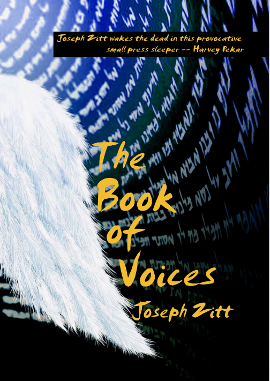This piece was written before I began The Book of Voices, as the text for a composition for speaker and string orchestra. As I describe in the Afterword to the book, tt set me on the train of thought that resulted in the project, and I decided to incorporate it within the book
There are a enormous array of legends about Moses and interpretations of his story for each generation. Bruce Feiler has written a current best-seller, America’s Prophet: How the Story of Moses Shaped America. And even Sigmund Freud weighed in on the story in his Moses and Monotheism.
After the first few lines hit me, I wrote this text almost as quickly as I could type it. I thus don’t recall the decisions that I made in writing, though a few are evident on rereading it. The text intentionally echoes the song “Go Down, Moses”, and the musical materials for the orchestral piece were all derived from it. And the ending echoes another hymn, “Shall We Gather At the River?“
The theme that runs most clearly through it is that of true names. This connects to the idea ofslave names. I remember being fascinated, as a child, by hearing of Cassius Clay’s changing his name to Muhammad Ali. And most of the families that I knew then (living in a neighborhood that was predominantly Jewish when we moved in, and going to a Jewish parochial school through seventh grade) had changed their names, willingly or not, upon coming to America.
As with most of the reported derivations of names in the Bible, the story of Moses’s naming doesn’t work too well, linguistically. It’s more likely that his name is related to those of many Egyptian kings, such as Thutmose and Ahmose, each of which end with “Moshe,” which is Moses’s name in Hebrew.
It seems likely that his mother would have given him a name before the princess named him. Legends exist as to what his original name was, but they were created much later and are contradictory. So we may never know what his original, birth name had been.
The question of Moses’s name arises again in The Book of Voices at the end of his life, in the story of Serach.
Questions
Do you feel that the name with which you were born was the right one for you? Have you changed your name? How do you feel that that has changed how you see yourself and how others see you? If you were able to choose a different name now, would you do so? How would that change who you are? Or have you gradually grown into the name with which you were born?


Recent Comments